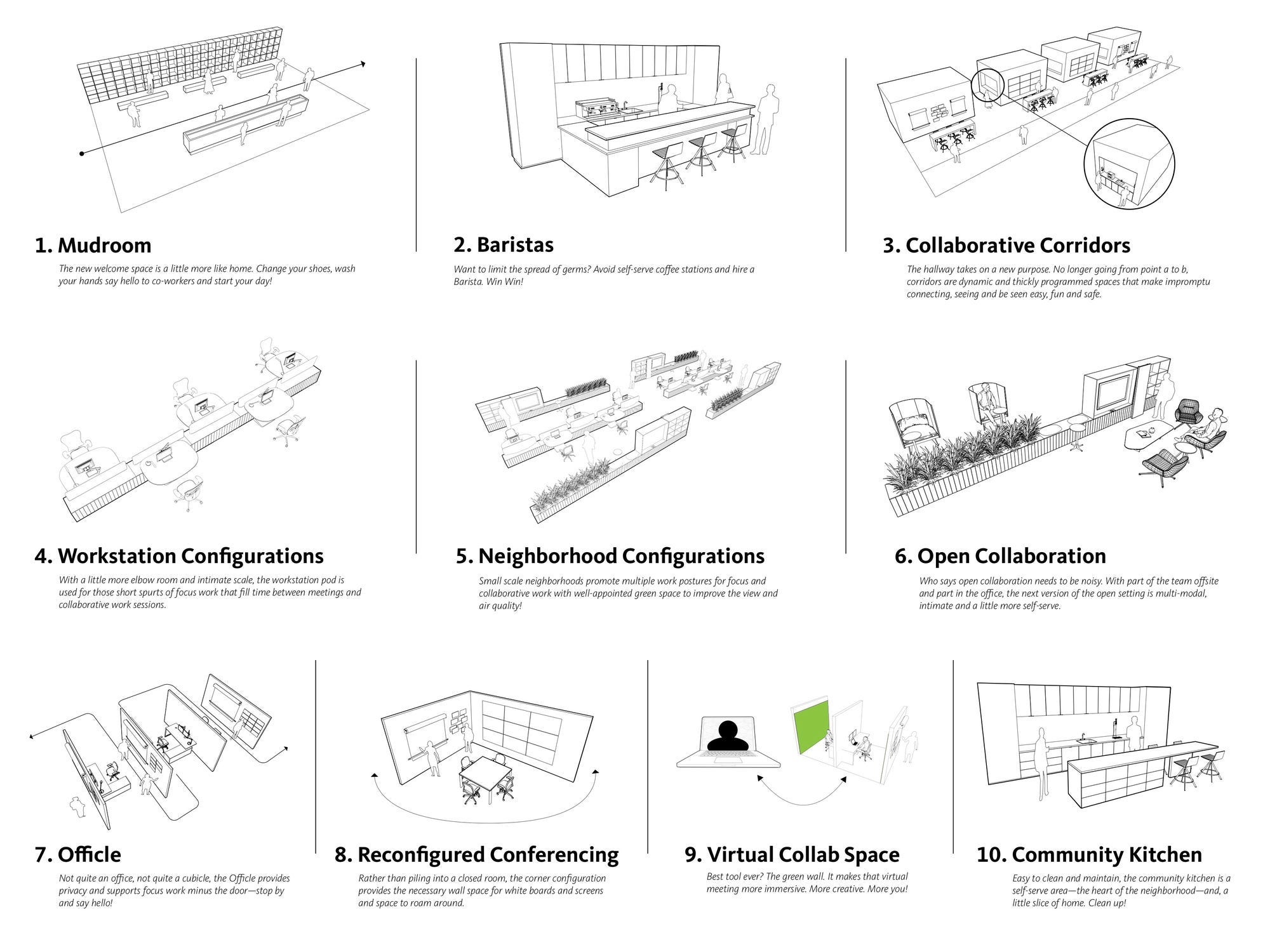As states across the country begin to ease social distancing restrictions, CEOs are facing the difficult task of reopening their businesses while protecting the safety of employees.
There are big questions surrounding what a return to normalcy will look like.
Among them is how to design the office of the future. I talked to the co-CEOs of Gensler, the world’s largest architecture firm, to find out what the most dramatic changes will be.
But not all companies are the same and fault lines are beginning to emerge within corporate America.
Some have quick plans to return employees to the office, while others are using the opportunity as a chance to implement permanent work-from-home policies.
Even more are straddling those two decisions. Facebook, for example, is opening its offices in July but allowing associates to work remotely for the remainder of 2020.
As leaders plot what a post-coronavirus world will look like, one thing is clear across the board: technology will be key.
From restarting factories remotely to hosting trade shows virtually, executives are tapping digital tools to navigate the uncertainty.
Take Frito-Lay.
The most profitable segment of PepsiCo's $67 billion portfolio owned the Snacks.com domain name for over 20 years.
While the company had considered launching a direct-to-consumer website in the past, there wasn't a need as snacks remained a popular item to buy in stores.
After consumer shopping habits changed almost overnight once the coronavirus hit, Frito-Lay took Business Insider inside how it expedited work on its e-commerce platform and launched the new site in just 30 days.
Below are several other stories from around the Business Insider newsroom that show the gusto with which companies are approaching innovation amidst the ongoing crisis.
And a brief reminder: If you're interested in receiving this biweekly newsletter and other updates from our ongoing Innovation Inc. series, please be sure to sign up here:
See you in two weeks:
- Sales at Anheuser-Busch InBev fell more than 9% in the past quarter. One saving grace for the brewery giant was its innovation center. Known as ZX Ventures, the unit is now spurring $1 billion in sales annually. Its chief marketing officer explained how.
- In a sign that the coronavirus pandemic is really hitting all aspects of life, Bloomberg is considering changing up its iconic terminal to accommodate the new work-from-home reality - one in which many workers don't have the multiple computer screens they might be used to.
- CEOs and other executives are grappling with significant decisions around the future of their business. And some will lead to difficult conversations with employees. One way to help soften the blow is through virtual reality. The technology is finding a use across industries, from hospitals to insurers, during the outbreak.

